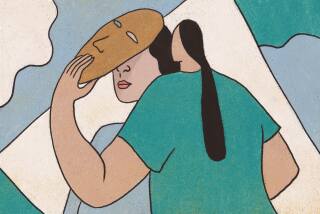FICTION
- Share via
BONE GAME: A Novel by Louis Owens (University of Oklahoma Press; $14.95; 243 pp.). Cole McCurtain, a mixed-blood professor of Indian Studies at UC Santa Cruz, to his worshipful teaching assistant, regarding his students: “They like to think Nicholas Black Elk was a one-dimensional holy man, Neihardt’s romantic, tragic creation. That’s what the whole . . . world wants, isn’t it Robert? To see Indians as noble and mystical and, most important of all, impotent and doomed? Then the whites can put on beads and leather and feathers and shed a little tear and be Indians.” It’s natural to assume that Cole’s anger reflects that of Louis Owens, a mixed-blood professor of English at the University of New Mexico: Imagine what it feels like to know that your ancestors were not only virtually exterminated by Europeans, but their culture selectively appropriated and disfigured--to the point at which it’s difficult, especially for a mixed blood, to decide what is authentic, what spurious. “Bone Game” is Owens’ attempt to quarry some of his anger, and he does so by having Cole team up with Alex Yazzie, Santa Cruz’s other Native American professor, to solve--more or less unconsciously--a string of campus murders. Cole is a reluctant participant, a lonely, divorced man on the verge of becoming the stereotypical drunken Indian, but he has dreams that direct him toward the truth and a family that senses his danger. The best parts of the novel involve Alex, a wise-cracking cross-dresser, and Cole’s aged relatives, who arrive from Mississippi to help out; not so good is Owens’ framing the book as a mystery in which the killer’s identity is never a mystery--you know instantly it’s going to be an Indian wanna-be. If “Bone Game” isn’t particularly effective overall, one sly proposition shouldn’t go unnoted--Cole’s suggestion that the National Science Foundation fund an educational, Indian-led dig in Boston’s Old North Church, since Puritans had such a major impact on Native American culture.
More to Read
Sign up for our Book Club newsletter
Get the latest news, events and more from the Los Angeles Times Book Club, and help us get L.A. reading and talking.
You may occasionally receive promotional content from the Los Angeles Times.










